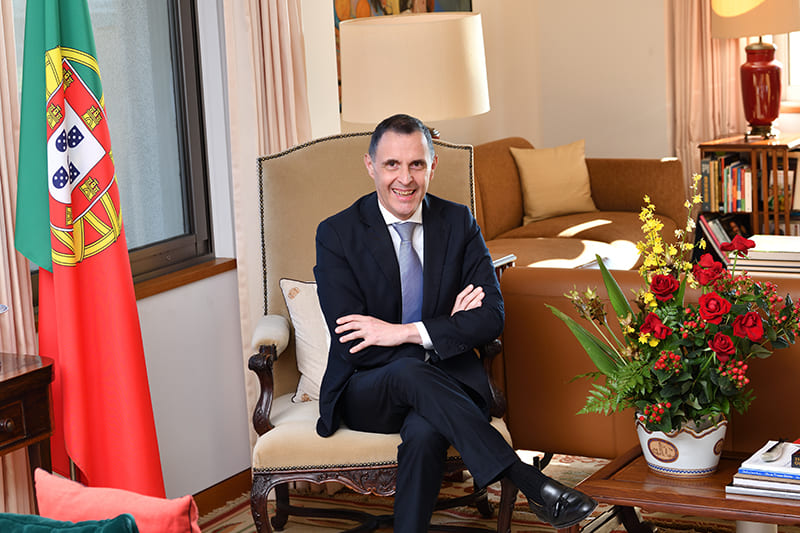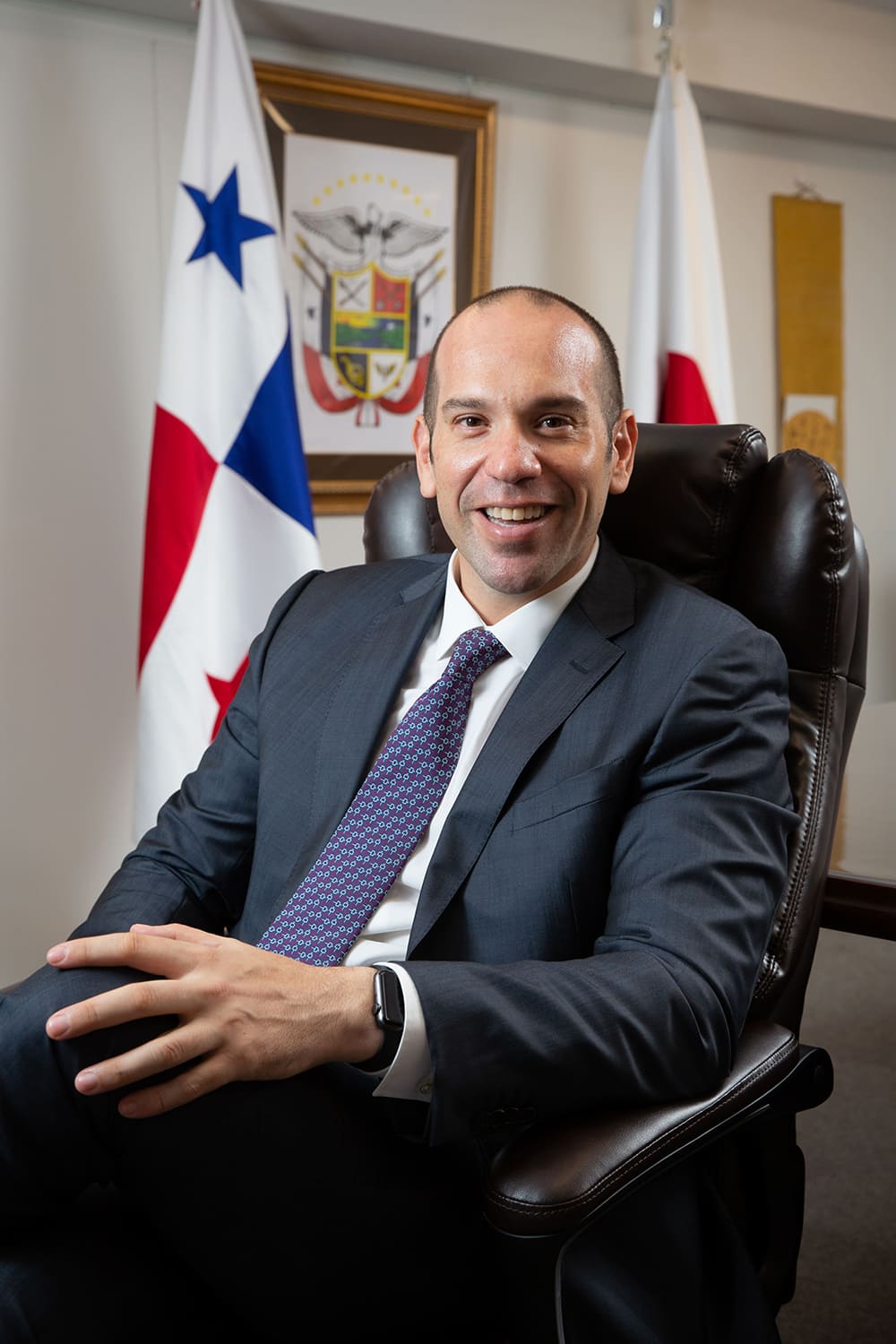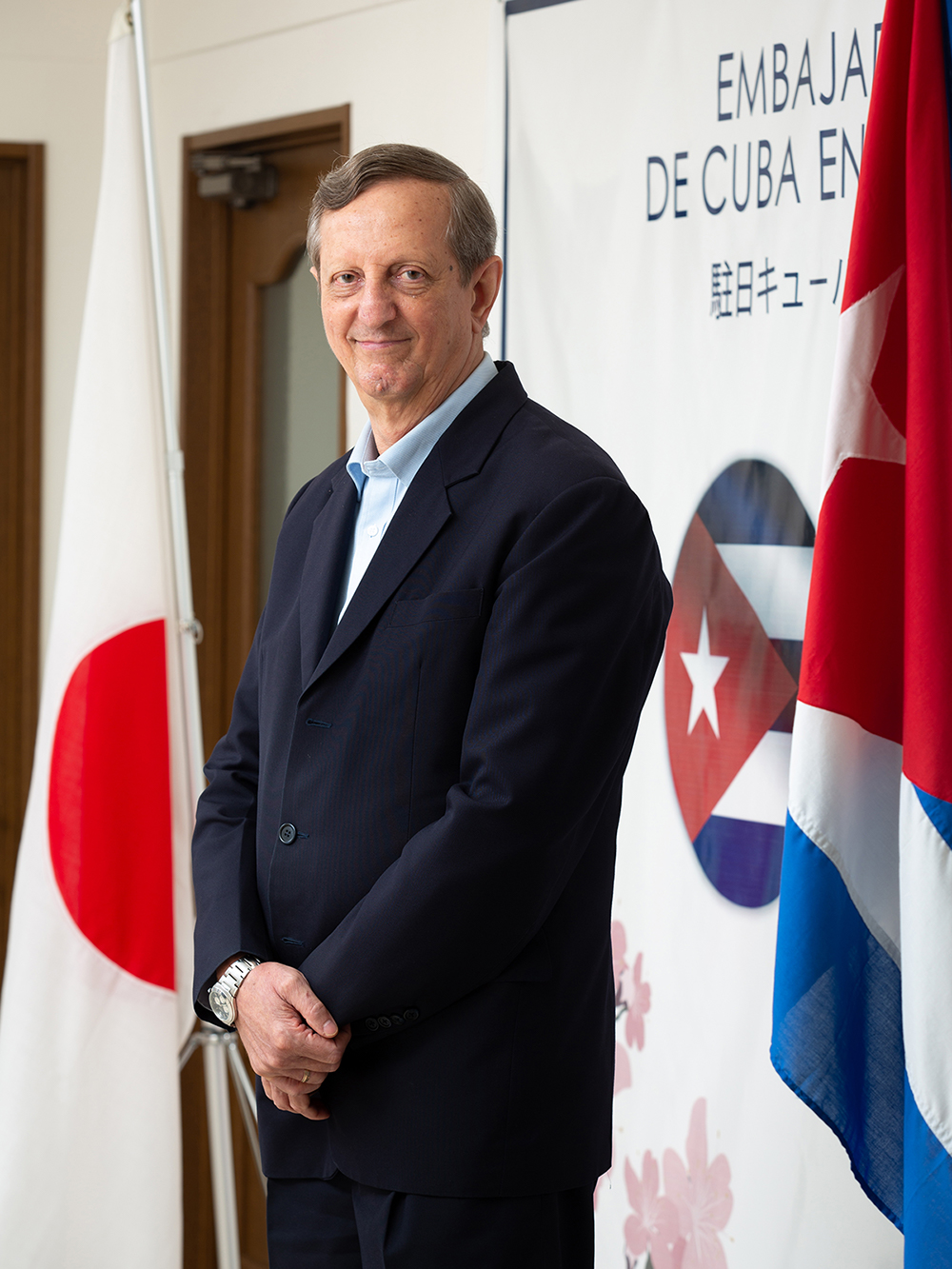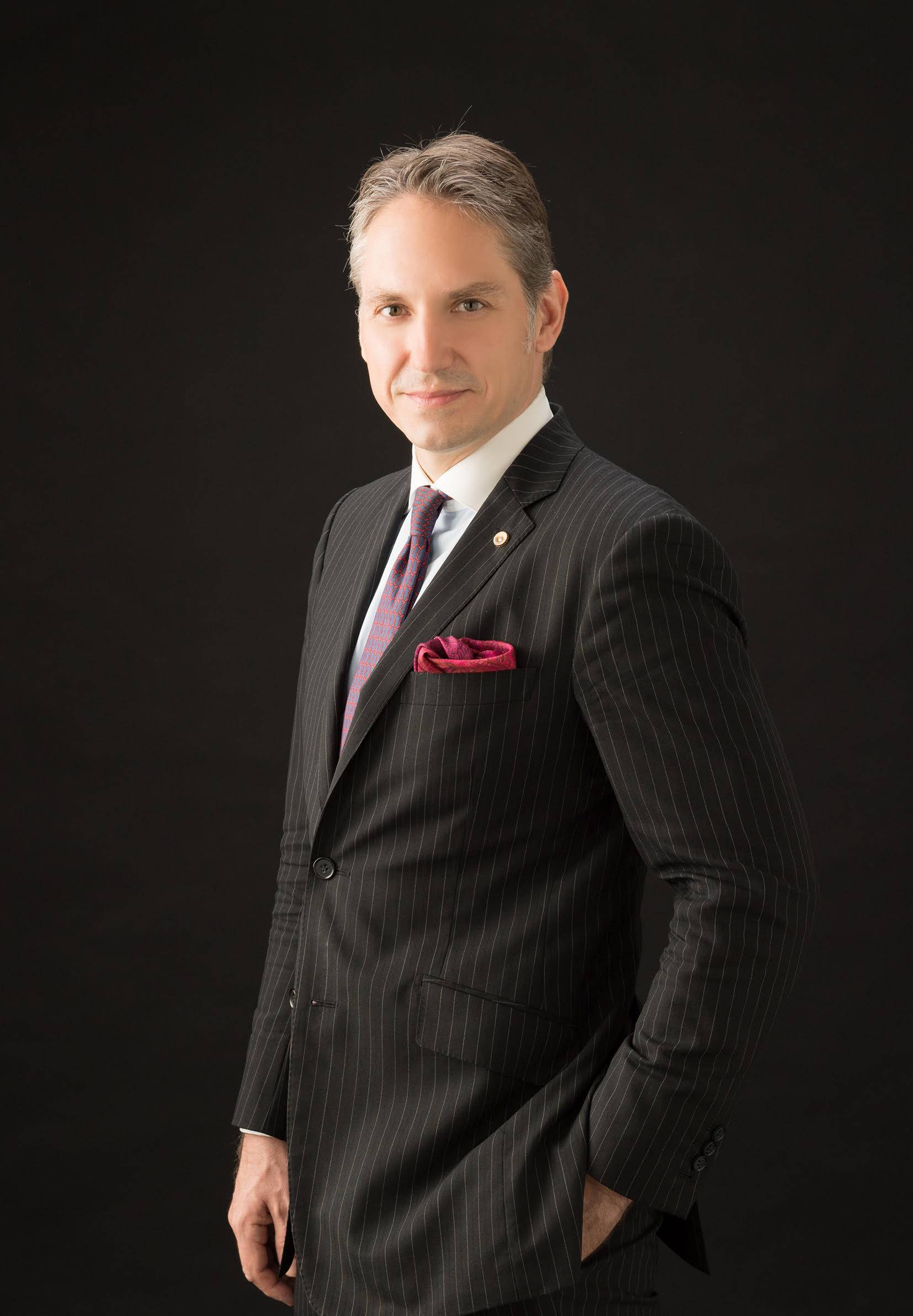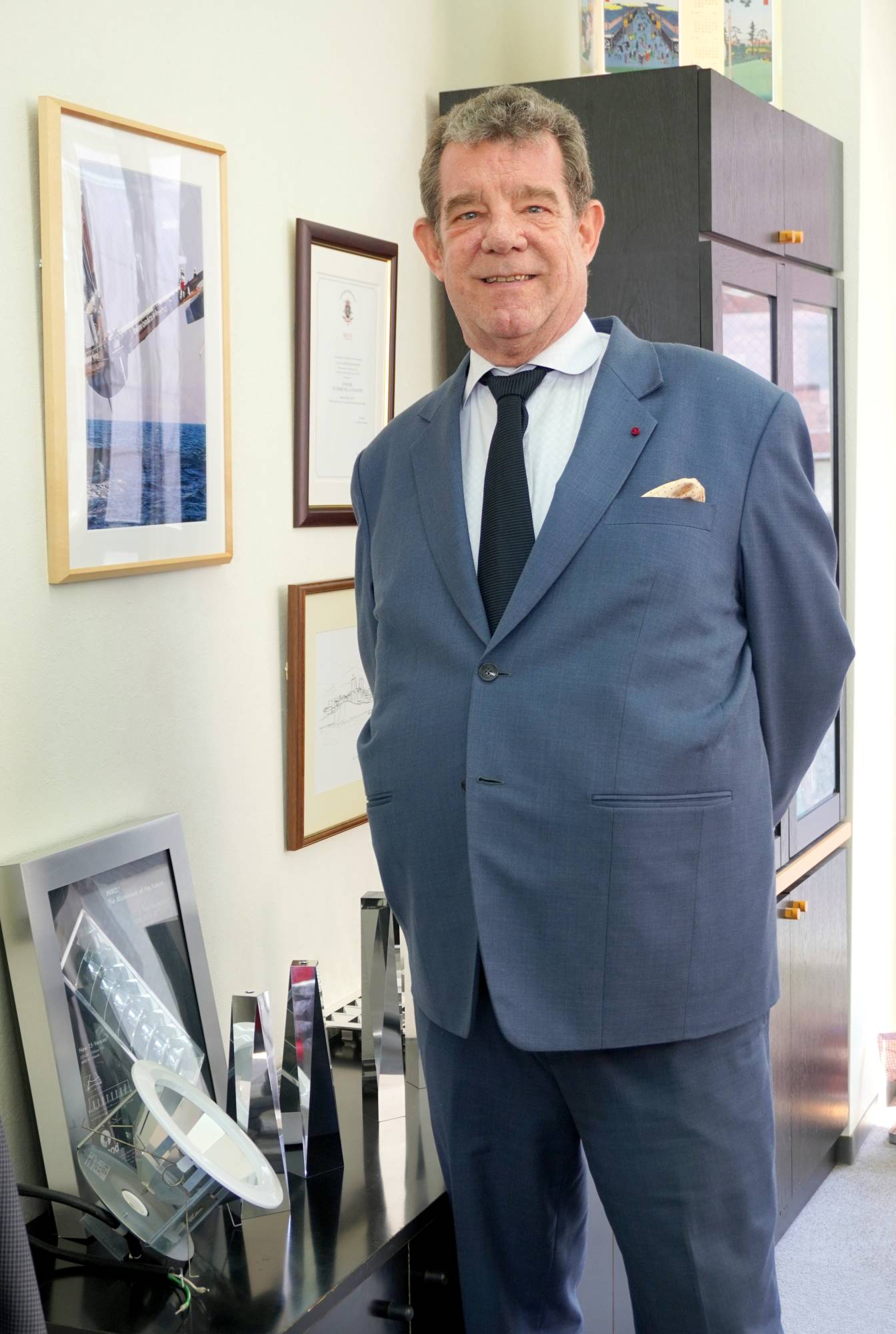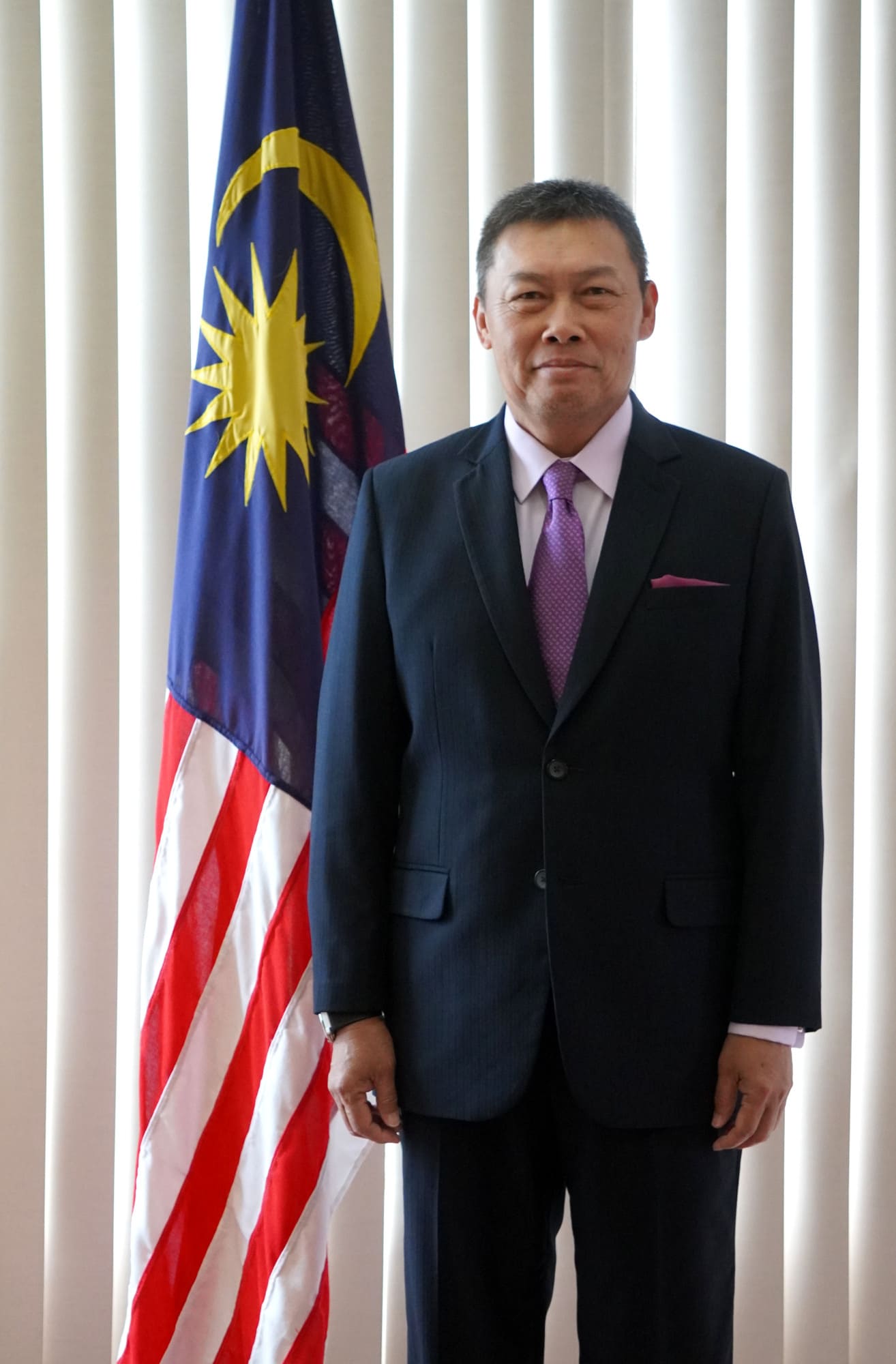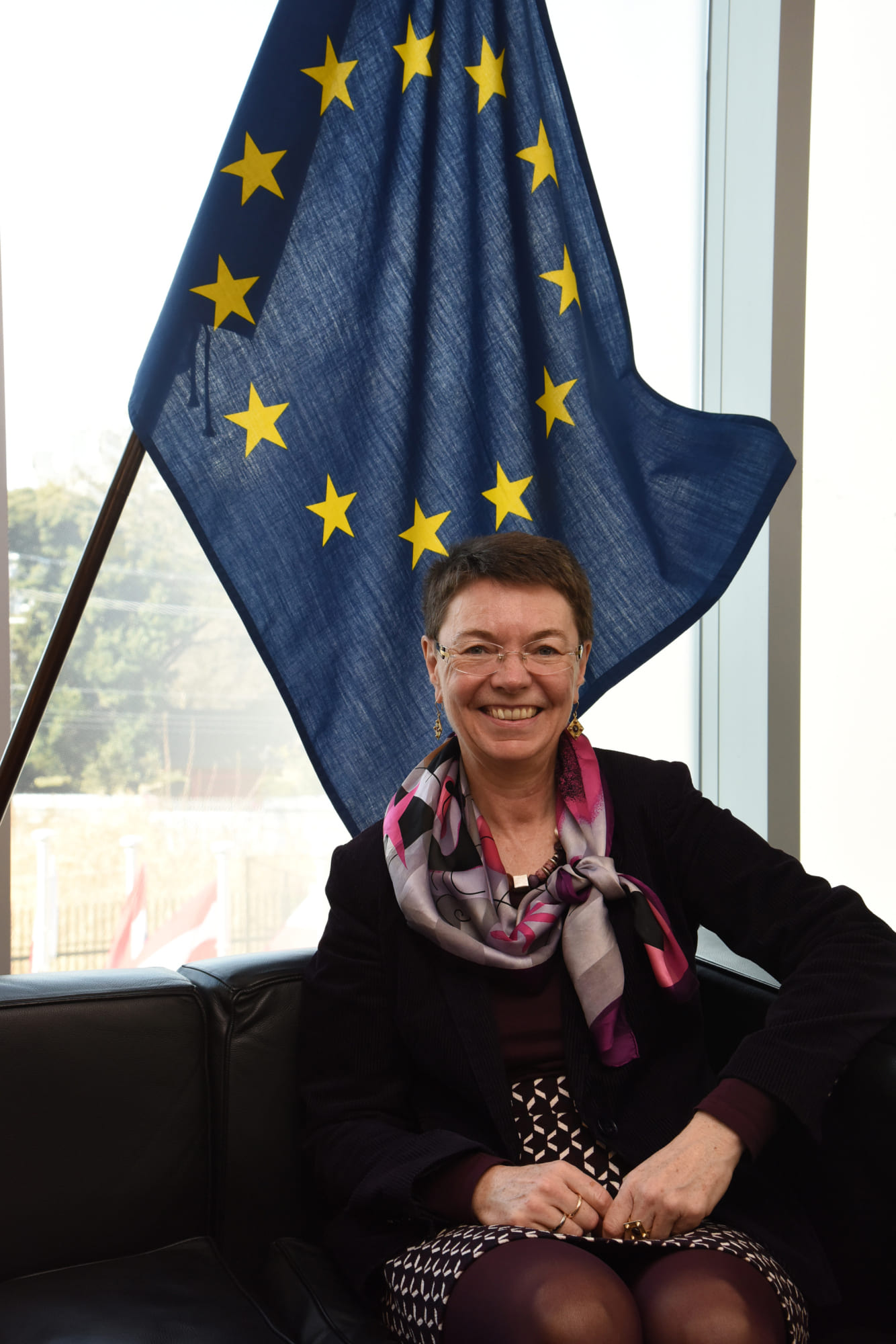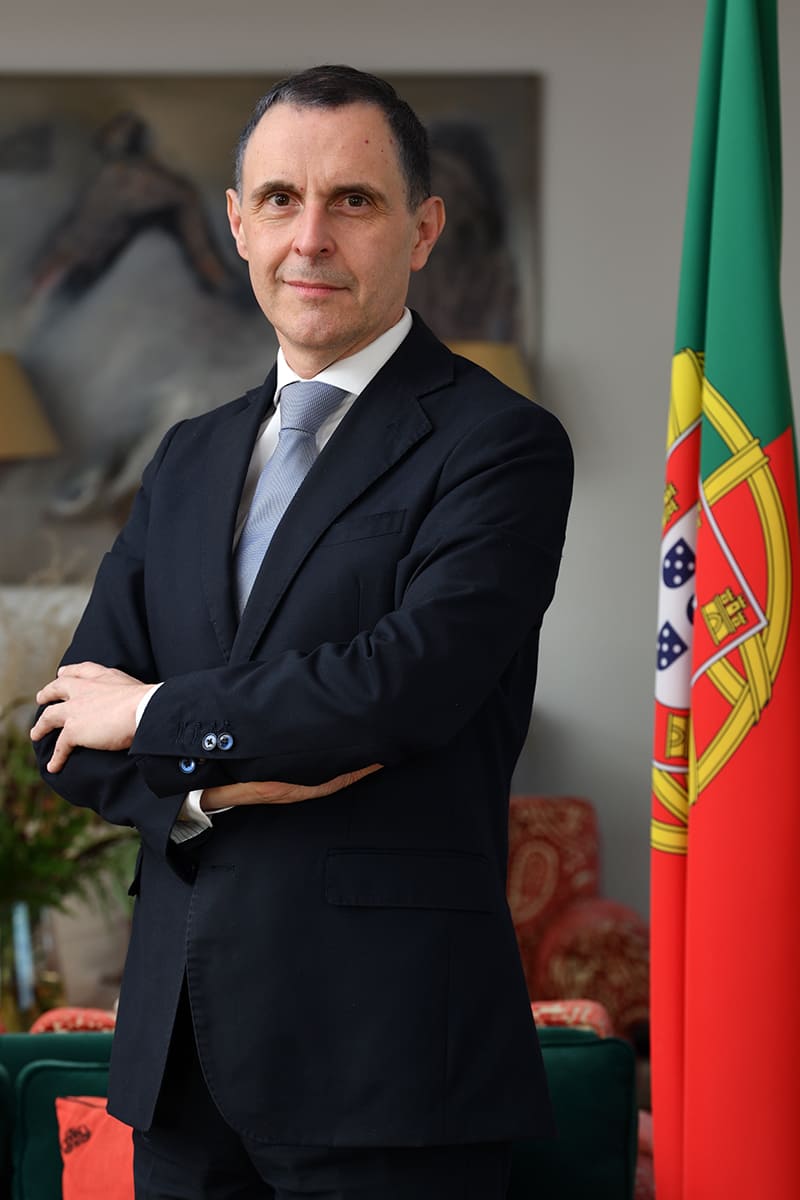
November 28, 2025
Portugal envoy expands Japan’s earliest Western ties
Gilberto Jeronimo talks about rapidly burgeoning trade and tourism
- Name: Gilberto Jeronimo
- Title: Ambassador of Portugal to Japan
- URL: https://toquio.embaixadaportugal.mne.gov.pt
- Hometown: Lisbon
- Years in Japan: 8 months
The son of two civil servants, Gilberto Jeronimo grew up seeing the value of public service firsthand. After completing a degree in international studies, he initially went into teaching but then found himself wishing to make a more active contribution in his field of expertise, so he joined the diplomatic corps.
As the ambassador of Portugal, Jeronimo is proud to represent a country with a long tradition of engaging with diverse cultures and peoples across Europe, Africa, Latin America, Asia and the Middle East. Drawing on this heritage, he points out that Portugal’s present-day status as a middle-sized European nation allows it to focus on building bridges with other nations.
Success at Expo 2025
In his previous roles, Jeronimo served in such key positions as ambassador to the Political and Security Committee of the European Union in Brussels and, later, to the Council of Europe in Strasbourg, France. His posting to Tokyo marks his first bilateral ambassadorship — one focused on building relationships between his home country and a single host nation — and he is delighted to be based in Japan, having enjoyed visiting the country as a tourist in the past.
“Portugal has 482 years of shared history with Japan, being the first European country to arrive here,” he said. “And 2025 has been a decisive year for strengthening bilateral relations, with Portugal’s strong commitment to its presence at Expo 2025 Osaka, in addition to the recent relocation of the embassy to new facilities.”
Portugal’s participation at the expo was a resounding success, with its pavilion, designed by renowned architect Kengo Kuma, attracting 2.3 million visitors. The pavilion’s theme, “Ocean, the Blue Dialogue,” highlighted the ocean as a life-giving resource through an interactive multimedia experience. It also reflected the centuries-old connection that Portugal and Japan share through their maritime histories.
A subway suspension on the night of Aug. 13, which left more than 10,000 expo visitors unable to return home, led to unexpected moments of international hospitality. At the Portugal Pavilion, staff opened the gallery as an overnight rest area and provided beer and soft drinks for those who were stranded.
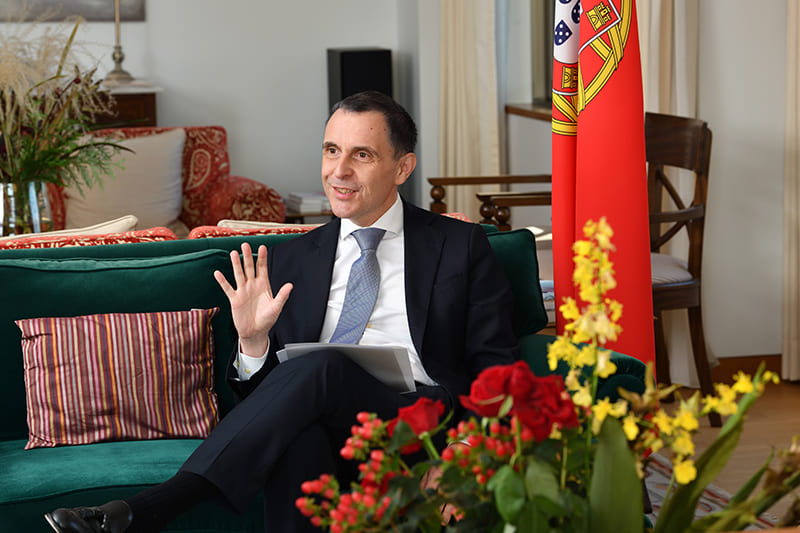
Building on a shared heritage
The first recorded Western arrival in Japan occurred in 1543 when a group of Portuguese merchants traveling to China were blown off course and landed on the island of Tanegashima, part of present-day Kagoshima Prefecture. In the decades that followed, Nagasaki became the main center of trade and cultural exchange between Portugal and Japan, a legacy that continues to shape the city’s identity. Jeronimo has enjoyed visiting the region, including a recent occasion when he addressed students at Nagasaki University, sharing insights on global affairs and his own experiences in the diplomatic service.
He was also on hand to welcome Portuguese Prime Minister Luis Montenegro, who met with his counterpart in Tokyo. “The strategic partnership agreement signed during Prime Minister Montenegro’s visit in September — the first by a Portuguese head of government in 10 years — is designed to sustain renewed momentum and elevate our relationship beyond the already rich historical ties that unite us,” he said.
Jeronimo notes that Portuguese exports to Japan have nearly doubled in the past decade. Meanwhile, Japanese investment plays an increasingly important role in the Portuguese economy, expanding into sectors such as automobiles, chemicals, renewable energy, IT services and engineering.
Beyond economic ties, the two countries are both booming destinations for tourists, and Jeronimo feels there is room for shared dialogue on how to manage this in a sustainable way that benefits both residents and visitors.
“It is always a delicate balance, but I believe Portugal has learned valuable lessons, both from its own experience and from others: reduce seasonality, improve environmental performance and diversify destinations,” he explained, adding that things also look promising for continued growth in the number of Japanese tourists visiting Portugal.
Bringing two cultures to table
Jeronimo is looking forward to further developing cultural ties, too. The national tourism authority, Turismo de Portugal, launched a series of initiatives in Japan combining gastronomy with Portuguese wines. The project included collaborative meals that brought together Michelin-starred Portuguese chefs with their Japanese counterparts, representing different regions and cooking styles. The embassy also organized Portugal Festa, the first Portuguese street festival ever held in Tokyo, in the Shimokitazawa area in May, which he hopes will become an annual tradition.
On a more personal level, every day brings a new discovery for Jeronimo in his host country, where he can indulge his interests in the arts, travel and gastronomy, noting that “Japan is perfect for all of them.” He also appreciates Japan’s strong sense of regional identity, noting the parallels with Portugal, where local traditions and cuisines reflect the deep connection between people and their natural surroundings.
Jeronimo enjoys what he calls “the quiet choreography of daily life” in Tokyo, where everything seems to move smoothly and with intention. “It’s amazing how a city of so many millions can be as quiet as Tokyo. There’s a sense of order that doesn’t feel imposed but rather internalized,” he said.
He believes that the two cultures reflect different but complementary ways of seeking harmony: Portuguese society tends to be adaptable and creative in finding solutions, even in uncertain situations, while Japan demonstrates remarkable discipline and precision. “I often feel that our societies look at the world through different lenses that, together, complete the picture.”
